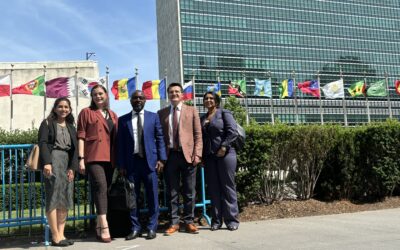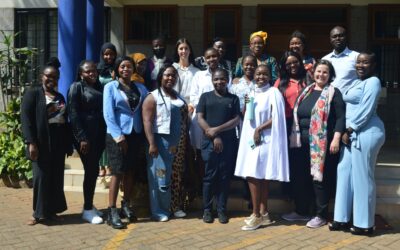This post was written by Kanta Mendon, with contributions from Sarah Bluestein and Shannon Fallon
Nobel Prize winner Kailash Satyarthi says American consumers play an important role in the fight against child labor. America has one of the largest import economies in the world and imported more than $2 trillion of goods in 2016. Many of these imported goods, ranging from textiles to cell phones, are manufactured using exploitative or child labor. The only way for this to change is for American consumers to demand that imported products be fair trade. Consumers also should be willing to pay a slightly higher price for these products to ensure that laborers receive fair wages for their work.
Satyarthi’s comments came during a Capitol Hill briefing in Washington earlier this month, hosted by the Congressional Caucus on Human Trafficking, the Child Labor Coalition and the Alliance to End Slavery and Trafficking , coalitions that include Free the Slaves. Satyarthi is a children’s rights and education advocate in India and is the founder of Bachpan Bachao Andolan (Save the Childhood Movement). Satyarthi began the briefing by sharing a story from his childhood.
You may ask: what can one person do? Let me tell you a story I remember from my childhood. A terrible fire had broken out. All the animals were running away, including the lion, king of the fores. Suddenly, the lion saw a tiny bird rushing toward the fire. He asked the bird, “What are you doing?” To the lion’s surprise, the bird replied, “I’m on my way to extinguish the fire.” He laughed and said, “How can you kill the fire with just one drop of water in your beak?” The bird was adamant and said, “But I am doing my bit.”
The hummingbird has become the hallmark for the Kailash Satyarth’s foundation. It symbolizes the responsibility that each individual has in ensuring that no child is deprived of a childhood. Satyarthi emphasized that America is a beacon of hope in the struggle to achieve this goal due to the ideals of freedom and diversity it was founded on. He encouraged everyone to “embrace the whole world because they are all our children.” The briefing ended with a panel where each panelist was asked what they believed would be the most important steps moving forward and Satyarthi said that the public needs to realize that the consumers’ power and the power of business can bring about change.
In addition to Satyarthi, there were two other panelists at the briefing, Anna Flores and Kevin Willcuts. Flores is a former child laborer; she worked in blueberry fields between the age of 6 and 14, then started working in tobacco fields in North Carolina. She gave an emotional description of her struggles of working long hours in high temperatures with little access to water to the point of exhaustion. She shared that currently there are exemption in the United States that allow children to work in fields under harsh conditions. In order for America to be a leader in ending child labor, these exemptions and loopholes need to be closed so no children can be exploited to work in the agricultural sector. She believes that the solution for preventing child labor lies in implementing professional development programs to help youth find safer alternatives to field work. These programs should provide youth with safer opportunities to financially support for their families.
Kevin Willcuts introduced an informational app called “Sweat and Toil.” Created by the U.S. Labor Dept., it helps users look at individual products and see the countries that use exploitive labor to produce them. He stated that in order to fight child labor we need to leave a project mindset. Projects are helpful in testing models but focus on sparking something larger. He said we need to be asking the question: “How can we encourage systemic change?”
The panelists’ passion, dedication, and resilience to the cause was inspiring. It is crucial for each one of us to be critical consumers and demand that no child is harmed in the production of our food, clothing, and all other products we use. We all must realize our moral responsibility and embrace the mindset of the hummingbird.
“Every single minute matters,” said Satyarthi. “Every single child matters, every single childhood matters.”



